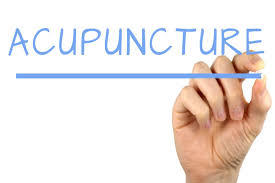Staying on point
Does acupuncture work? Certainly, it has caused a lot of debate over recent years.
The mainstream often tries to discredit certain types of therapy. Acupuncture was often labeled ‘alternative’ in the past. Almost as an attempt to undermine its credibility.
But things have changed. It has gained in prominence. Of course, once celebrities started using it interest rose. For example, Chris Evans and Gwyneth Paltrow are both fans.
Remarkably, treatments have increased to over 4 million a year in recent years. People have turned to acupuncture more and more in the last 25 years. This coincides nicely with the formation of the British Acupuncture Council back in June 1995.
But do the studies back up the popularity? Let’s take a look.
Studies on acupuncture
You may be surprised by the volume of research that has been done. Over the last 20 years, there have been over 13,000 studies carried out in over 60 countries.
Consequently, you won’t get a definitive answer to the question. Science does not emphatically endorse acupuncture for every known condition.
But thankfully, there are many instances where the evidence in favour of acupuncture is strong.
Just as an example, let’s take osteoarthritis in the knee. An NCBI paper compared acupuncture and other types of physical treatments. It came out in favour of acupuncture. To quote from the paper,
- acupuncture can be considered as one of the more effective physical treatments for alleviating osteoarthritis knee pain
So does acupuncture work?
There are numerous examples in research that support the case for acupuncture.
Here are some of the conditions for which the evidence for acupuncture is strong:
- Migraine prevention
- Reducing Chronic Low back pain
- Relieving Chronic and tension-type headaches
- Reducing Post-operative pain
- Alleviating vomiting and sickness after surgery
In addition, there is a long list of conditions for which the research shows positive signs. There is evidence of a potentially positive effect on the following:
- shoulder, lower back and neck pain
- depression
- insomnia
- Irritable Bowel Syndrome
- Sciatica
- Menopausal hot flushes
And those are just some of the more well-known conditions it can help. There are literally dozens of other conditions where research supports its use.
But how does acupuncture work?
The answer to that question would vary between different schools of acupuncture. And the interpretation would also vary between different geographical locations.
But here we are looking for a scientific explanation behind its effectiveness.
The sciences of medicine and neuro-biology have come on leaps and bounds. And the developments have reinforced the fact that the body is a highly inter-related system. And this, in turn, relies on a highly tuned signaling system.
Signals are sent by biochemicals. Examples of these include names you are now aware of such as dopamine, endorphins, and serotonin. The research shows that acupuncture helps to trigger these natural opioids for the body.
This in part helps to explain its effectiveness. But, of course, the full explanation is beyond the scope of this short article. There are many factors that help to make the treatment effective.
A final word
We hope this information is useful. If you need advice or have any questions about our treatments, please contact us. You can find us in Mill Hill Broadway and Islington. We are glad to help.
If you like this blog, please share!




